Toyota RAV4 vs VW ID.7 - Differences and prices compared
Compare performance (306 HP vs 340 HP), boot space and price (35100 £ vs 46400 £ ) at a glance. Find out which car is the better choice for you – Toyota RAV4 or VW ID.7?
Costs and Efficiency:
Price and efficiency are often the first things buyers look at. Here it becomes clear which model has the long-term edge – whether at the pump, the plug, or in purchase price.
Toyota RAV4 has a distinct advantage in terms of price – it starts at 35100 £ , while the VW ID.7 costs 46400 £ . That’s a price difference of around 11241 £.
As for electric range, the VW ID.7 performs clearly better – achieving up to 708 km, about 633 km more than the Toyota RAV4.
Engine and Performance:
Under the bonnet, it becomes clear which model is tuned for sportiness and which one takes the lead when you hit the accelerator.
When it comes to engine power, the VW ID.7 has a slight edge – offering 340 HP compared to 306 HP. That’s roughly 34 HP more horsepower.
In acceleration from 0 to 100 km/h, the VW ID.7 is to a small extent quicker – completing the sprint in 5.40 s, while the Toyota RAV4 takes 6 s. That’s about 0.60 s faster.
There’s no difference in top speed – both reach 180 km/h.
Space and Everyday Use:
Whether family car or daily driver – which one offers more room, flexibility and comfort?
Both vehicles offer seating for 5 people.
In curb weight, Toyota RAV4 is distinct lighter – 1745 kg compared to 2180 kg. The difference is around 435 kg.
In terms of boot space, the Toyota RAV4 offers minimal more room – 580 L compared to 532 L. That’s a difference of about 48 L.
In maximum load capacity, the Toyota RAV4 performs barely noticeable better – up to 1690 L, which is about 104 L more than the VW ID.7.
When it comes to payload, Toyota RAV4 distinct takes the win – 600 kg compared to 465 kg. That’s a difference of about 135 kg.
Who wins the race in the data check?
The VW ID.7 is decisively ahead in the objective data comparison.
This result only shows which model scores more points on paper – not which of the two cars feels right for you.
Costs and Consumption
View detailed analysis
Engine and Performance
View detailed analysis
Dimensions and Body
View detailed analysis
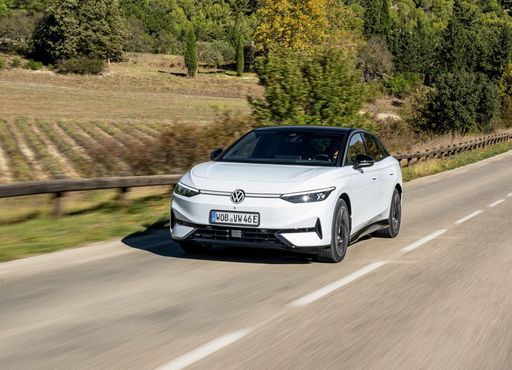
VW ID.7
Toyota RAV4
The Toyota RAV4 feels like a sensible friend on the road, marrying dependable practicality with a dash of SUV personality that keeps daily driving from turning dull. Comfortable and easy to live with, it looks tough without shouting and quietly gets the job done — a sensible pick for buyers who want versatility without drama.
details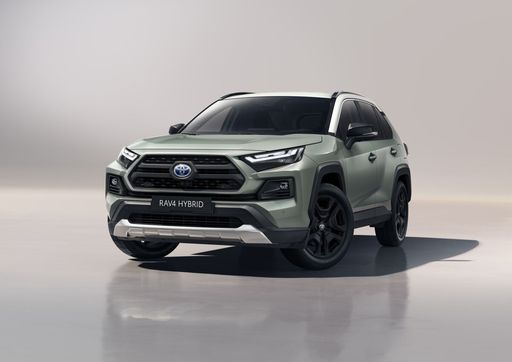
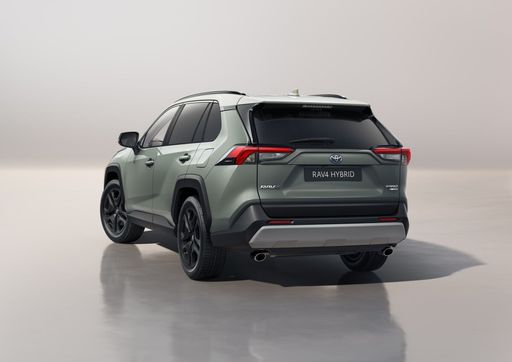
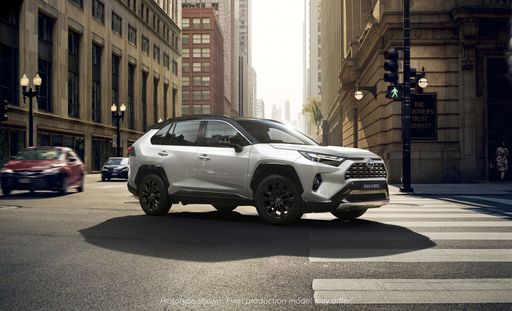
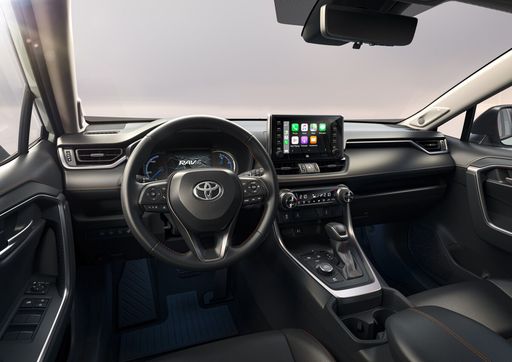
VW ID.7
VW ID.7 arrives as Volkswagen's electric grand tourer, pairing a low-slung, aerodynamic silhouette with a calm, understated interior that prioritizes comfort and space. It’s a sensible choice for buyers who want a relaxed, high-tech cruiser that covers motorway miles with poise rather than bravado.
details
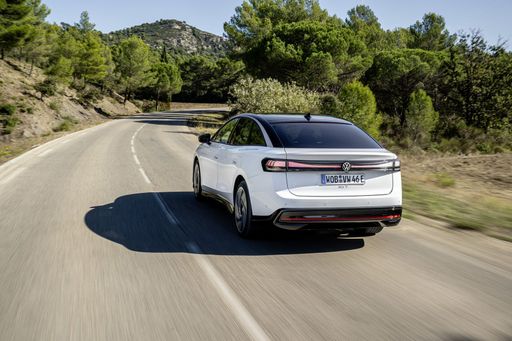
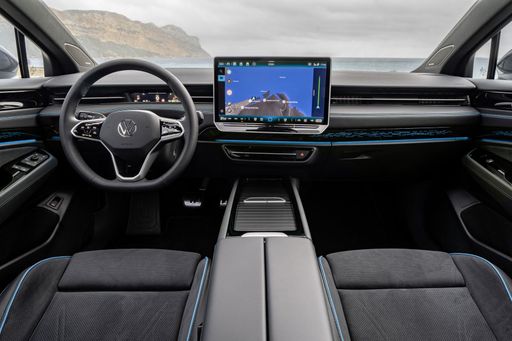
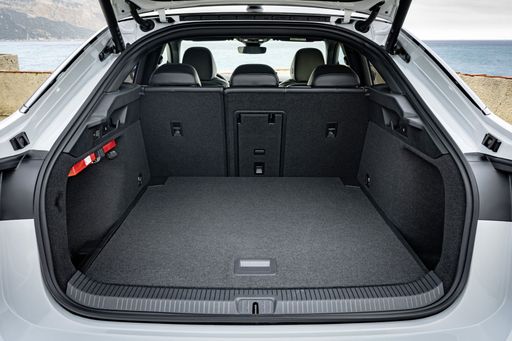
Costs and Consumption |
|
|---|---|
|
Price
35100 - 55700 £
|
Price
46400 - 54200 £
|
|
Consumption L/100km
1 - 5.6 L
|
Consumption L/100km
-
|
|
Consumption kWh/100km
-
|
Consumption kWh/100km
13.6 - 16.2 kWh
|
|
Electric Range
75 km
|
Electric Range
594 - 708 km
|
|
Battery Capacity
-
|
Battery Capacity
77 - 86 kWh
|
|
co2
22 - 128 g/km
|
co2
0 g/km
|
|
Fuel tank capacity
55 L
|
Fuel tank capacity
-
|
Dimensions and Body |
|
|---|---|
|
Body Type
SUV
|
Body Type
Hatchback
|
|
Seats
5
|
Seats
5
|
|
Doors
5
|
Doors
5
|
|
Curb weight
1745 - 1910 kg
|
Curb weight
2180 - 2325 kg
|
|
Trunk capacity
520 - 580 L
|
Trunk capacity
532 L
|
|
Length
4600 mm
|
Length
4961 mm
|
|
Width
1855 mm
|
Width
1862 mm
|
|
Height
1685 mm
|
Height
1535 - 1536 mm
|
|
Max trunk capacity
1604 - 1690 L
|
Max trunk capacity
1586 L
|
|
Payload
390 - 600 kg
|
Payload
460 - 465 kg
|
Engine and Performance |
|
|---|---|
|
Engine Type
Full Hybrid, Plugin Hybrid
|
Engine Type
Electric
|
|
Transmission
Automatic
|
Transmission
Automatic
|
|
Transmission Detail
CVT
|
Transmission Detail
Reduction Gearbox
|
|
Drive Type
Front-Wheel Drive, All-Wheel Drive
|
Drive Type
Rear-Wheel Drive, All-Wheel Drive
|
|
Power HP
218 - 306 HP
|
Power HP
286 - 340 HP
|
|
Acceleration 0-100km/h
6 - 8.4 s
|
Acceleration 0-100km/h
5.4 - 6.6 s
|
|
Max Speed
180 km/h
|
Max Speed
180 km/h
|
|
Torque
-
|
Torque
545 - 679 Nm
|
|
Number of Cylinders
4
|
Number of Cylinders
-
|
|
Power kW
160 - 225 kW
|
Power kW
210 - 250 kW
|
|
Engine capacity
2487 cm3
|
Engine capacity
-
|
General |
|
|---|---|
|
Model Year
2024 - 2025
|
Model Year
2023 - 2024
|
|
CO2 Efficiency Class
D, B
|
CO2 Efficiency Class
A
|
|
Brand
Toyota
|
Brand
VW
|
What drive types are available for the Toyota RAV4?
Available configurations include Front-Wheel Drive or All-Wheel Drive.
